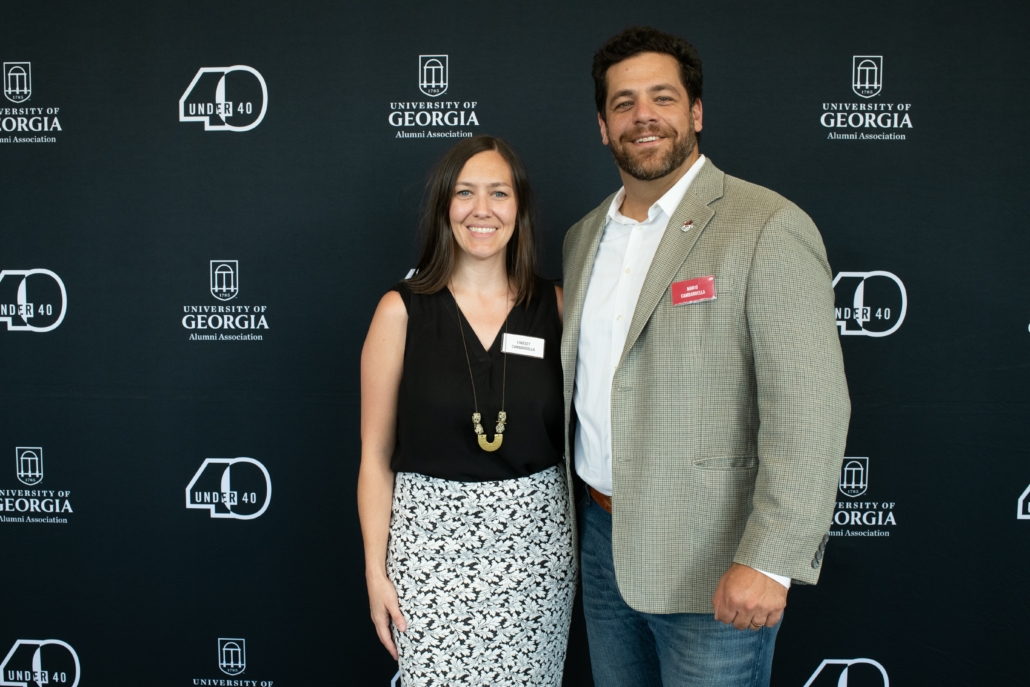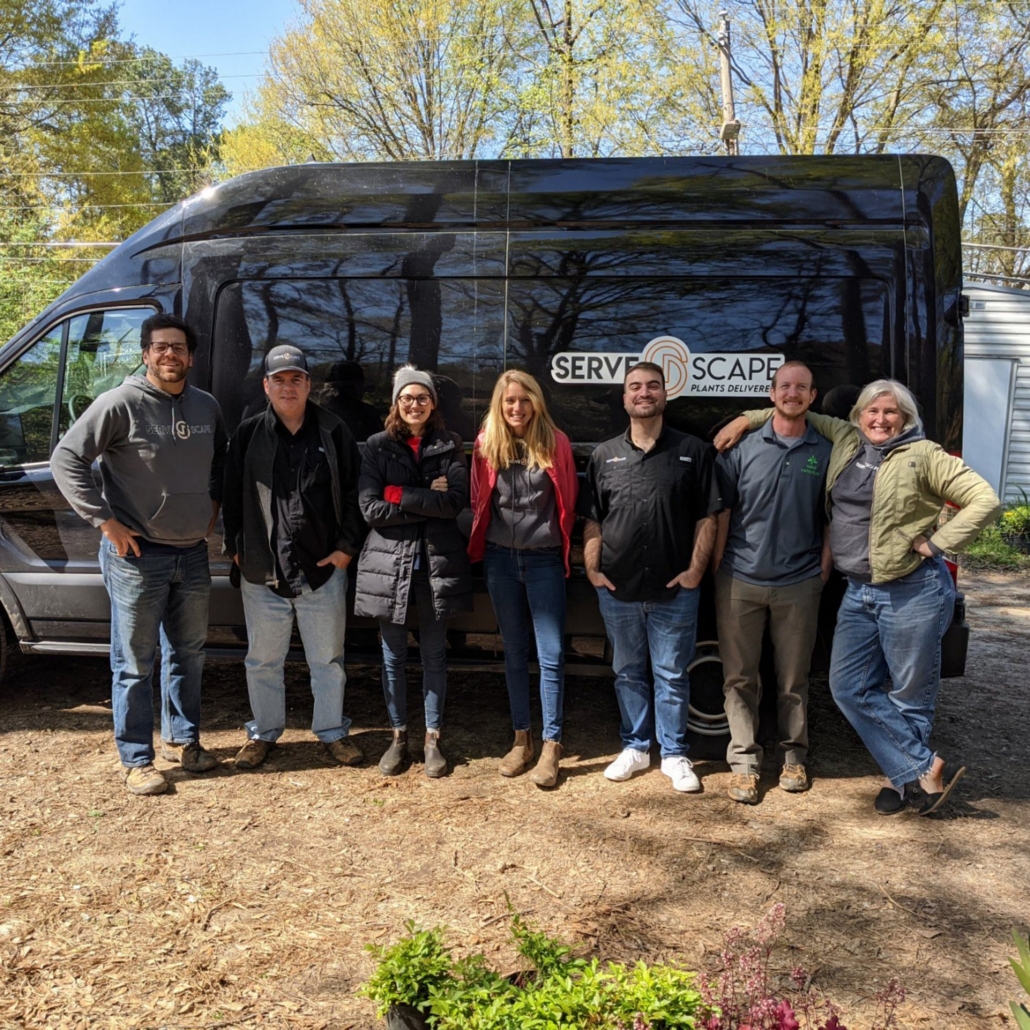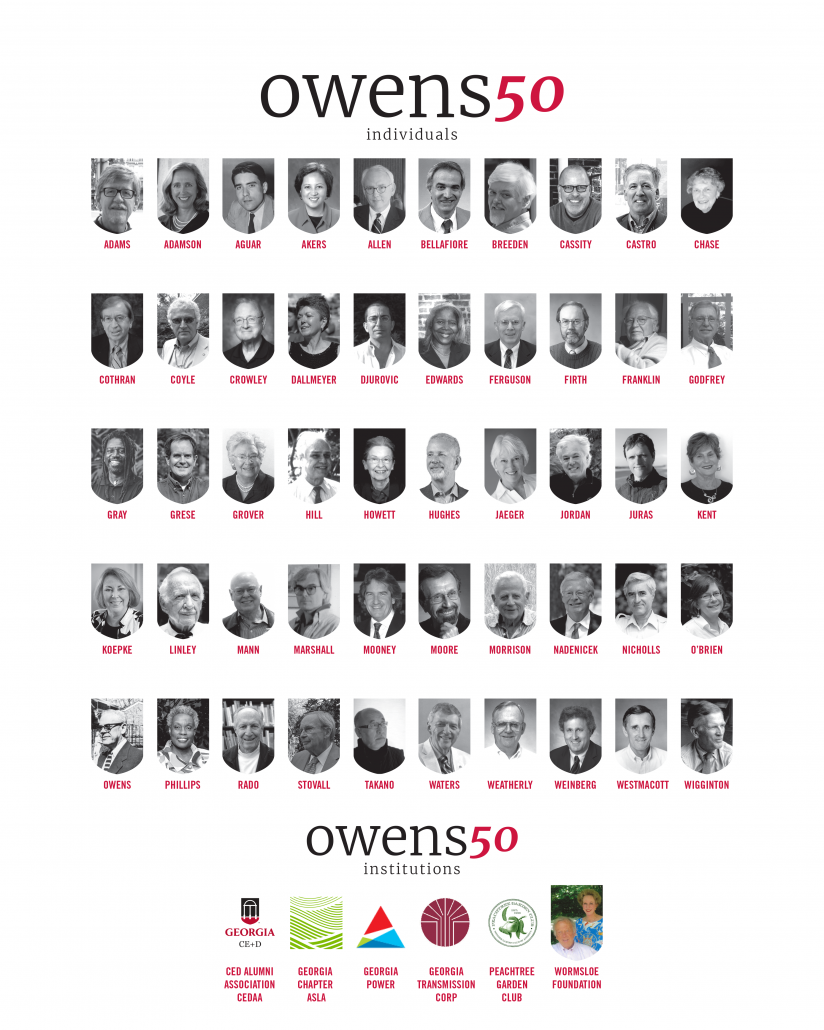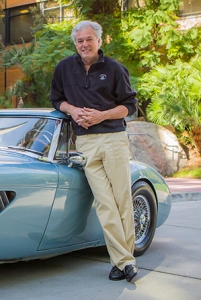40 Under 40 Spotlight: Mario Cambardella reinvents urban landscaping
For Mario Cambardella (BLA ’06, MEPD ’11, MLA ’13), connecting his professional purpose to a personal passion to make a difference ultimately set him on a pathway for success. It’s why he pursued a variety of service-oriented efforts to reinvigorate urban landscapes before turning his attention to starting an innovative business that relies on technology to better connect Georgia farmers with new markets in the Atlanta area.
For his personal, professional and philanthropic achievements, Mario ranked among UGA’s 40 Under 40 Class of 2021. The program celebrates young alumni leading the pack in their industries and communities.

Mario and his wife, Lindsey Cambardella (JD ’12).
How did Mario Cambardella find his purpose?
During his time at UGA, Mario connected with Jack Crowley, a professor emeritus in the College of Environment + Design. Mario found that “he understood how to find a solution that achieved true sustainability by balancing economic, social and environmental factors in equal harmony.”
After earning his master’s degree in landscape architecture in 2013, Mario landed an internship with a prestigious firm based in Colorado. However, many of his assigned projects didn’t align with his belief that designed landscapes should have a more holistic function that better supports the people who live near them. That’s what ultimately put him on a journey to become the first Urban Agriculture Director in the country.
“The premise is the landscape can be more than beautiful—it can perform, and it can have a function,” Mario said.
He would go on to lead the AgLanta initiative, focusing on bringing sustainable landscaping practices to underutilized properties in the Atlanta area. Relying on its Grows-A-Lot program, Mario acquired several vacant properties that had fallen into disrepair in USDA-defined food desert areas and converted them into community gardens. These spaces would help generate healthy food for the surrounding areas, and would be aesthetically pleasing and create a sense of place for the community.
Mario also helped cultivate the country’s largest municipal food forest, Urban Food Forest at Browns Mill.
What is ServeScape?
After focusing the first phase of his career on revitalizing urban communities, Mario embraced a new challenge when he founded ServeScape. Its goal is to bolster the green industry’s supply chain and enhance its use of technology to better serve customers and empower Georgia’s growers. It is Atlanta’s largest online-only garden center and wholesale plant nursery, sourcing a variety of Georgia Grown plants from farmers and horticulturists across the state.
ServeScape connects the bounty of growers with wider audiences, expanding their market and boosting revenues, while enabling property owners in urban areas to curate their own sustainable landscapes with native plants.
“We can enable beautiful and resilient landscapes all across the country because we’re relying on technology and a simple methodology,” Mario noted. “It’s bringing forward the idea that the products of every farmer can now get to market. And then when it gets to the market, we can actually make sure that it gets to the right hands.”

Mario (left) with his ServeScape team.
How is ServeScape sustainable?
Mario created ServeScape with sustainability in mind. ServeScape elevates locally grown products and locally stationed experts to foster a closer, greener community in the Metro Atlanta area. The company brings together landscape designers, plant experts and professional installers to create a landscape that challenges the norms of retail sellers.
By being a fully online marketplace, ServeScape does not waste resources on large, expensive plant nurseries and instead ships plants directly from the farm to clients’ doors. ServeScape’s designers also create a customized landscape that can last in each individual environment. Plants are meticulously curated to not only be beautiful, but also functional and resilient, reducing the need for replacements and leading to economic and environmental success.
“Through every job and project, I keep in mind that working in the natural and built environment makes you a student of each project site,” Mario said. “I hope I never lose the sense of adventure and excitement of seeing a site for the first time. Losing touch with the land distances yourself from many of the reasons this profession is so unique, engaging and rewarding.”
ServeScape is provides landscape design services throughout metro Atlanta and the Athens area, while AgLanta continues to advance its mission of advancing and supporting urban agriculture in the city.
Do you know an outstanding young grad leading the pack in their industry or community? Nominate them for the 2022 Class of 40 Under 40! Nominations close on April 8.
Written by Johnathan McGinty (ABJ ’00), Partner, The Trestle Collective



